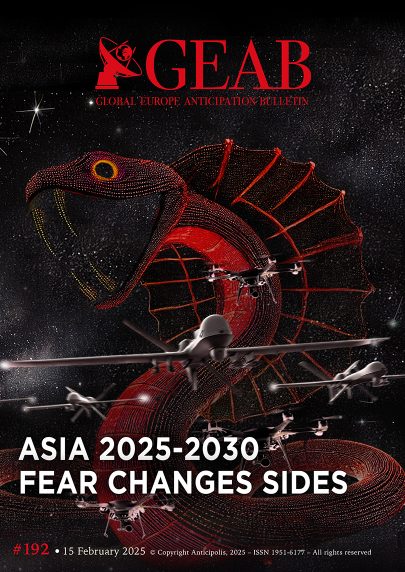GEAB 192
The fundamental principles of the Internet in 1995 included free access and technological democratisation. For the most part, the information highways launched at the time seemed to be offered to the public with a humanistic and humanitarian goal: universal access to knowledge. Then, in 2009, Big Tech began to take control of Web 2.0 (the era of social networks) and the souls that populated it[1]. Souls – and soon, above all, a growing share of the vast wealth generated worldwide by the deployment of these technologies.
States fund research and deployment, individual and corporate users generate value, but it is Big Tech that reaps the profits – in (growing) user fees, in capturing investment and even in subsidies under the CHIPS Act launched by President Biden in August 2022 (Intel, for example, received 7.9 billion dollars in state aid in November 2024).[2]
It’s easy to see why: Big Tech was given a blank cheque as part of the panic that legitimately gripped the West some fifteen years ago at the prospect of being overtaken technologically by China. How was an indebted West going to stay in the race? The private technology sector had the solution: channel a significant proportion of the financial flows towards it, with increasingly glittering promises of return on investment and increasingly dystopian promises of technological, social and economic breakthroughs, all backed up by a great deal of communication.
Login

While Europeans have their eyes firmly fixed on the headlights of the Trump-Musk duo, China, Vietnam, South Korea, Singapore, Indonesia and Malaysia have just celebrated the start of the Year [...]
The transformation of the global landscape is no longer simply a matter of Chinese technological or economic dominance. We are witnessing the emergence of a new world order structured by [...]
Until now, it has been a question of preventing China from overtaking the United States in terms of technology. In 2025, not only will the West realise that China has [...]
At the start of this issue, we put forward the following hypothesis: Asia may be developing at breakneck speed, but it is ultimately following the same economic model of the [...]
The BRICS' difficulties in building a suitably influential financial system can be explained by their internal divisions. In 2026, we expect Asia to take over and lay the foundations for [...]
2025: Western Sahara, the new investment hotspot! We believe that the Morocco-Algerian disagreement over the Western Sahara will come to an end by 2025. Progress has been slow but steady. [...]

Comments